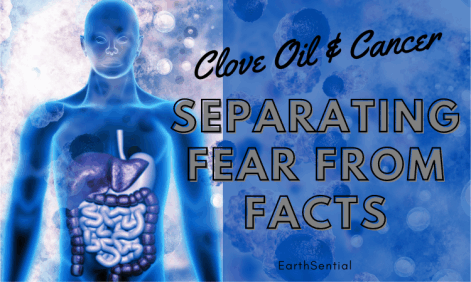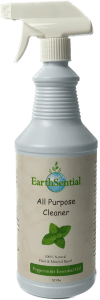Can Clove Oil Cause Cancer? Debunking the Myths and Understanding the Facts
Clove oil is popular as a natural remedy for various purposes, including oral health, pain relief, and aromatherapy. However, concerns have been raised about the potential link between clove oil and cancer. In this article, we aim to shed light on this topic and provide a balanced understanding of the potential risks and benefits associated with the use of clove oil.
When it comes to our health and well-being, it is crucial to be well-informed about the products and remedies we use. While clove oil has been praised for its therapeutic properties, it is equally important to examine any potential risks. By understanding the potential effects of clove oil, we can make informed decisions about its usage and ensure our overall well-being.
Clove oil is derived from the cloves of the Syzygium aromaticum tree, primarily composed of a compound called eugenol. This compound has been extensively studied for its pharmacological properties and has shown potential antimicrobial, antioxidant, and anti-inflammatory effects. However, concerns have been raised about the possible carcinogenic properties of eugenol and its impact on human health.
It is essential to approach this topic with caution and rely on scientific research to separate fact from fiction. By examining the available evidence and understanding the nuances of clove oil’s effects on the human body, we can gain a clearer understanding of its potential risks and benefits.
Understanding Clove Oil
Background Information on Clove Oil:
Clove oil, derived from the dried flower buds of the Syzygium aromaticum tree, has been valued for centuries for its unique aroma and numerous medicinal properties. With its warm, spicy scent and rich history in traditional medicine, clove oil has found its way into various cultures and industries worldwide. It is commonly obtained through steam distillation, a process that extracts the essential oil from the dried clove buds.
Clove oil’s versatility is remarkable, as it finds applications in multiple fields. In dentistry, it is recognized for its role in alleviating toothaches and oral discomfort. It is also valued in aromatherapy for its calming and soothing effects, promoting relaxation and emotional well-being. Additionally, clove oil is used in cooking and baking, adding a distinctive flavor and aroma to dishes and beverages.
The Chemical Composition of Clove Oil:
At the core of clove oil’s properties lies its chemical composition, prominently featuring a compound called eugenol. Eugenol is a phenolic compound known for its pleasant aroma and potential therapeutic effects. It contributes to the distinctive scent and taste of clove oil, making it a popular choice in various applications.
Eugenol possesses notable antimicrobial properties, which can help combat bacteria and fungi. Its antioxidant activity helps protect cells from oxidative stress, potentially benefiting overall health. Additionally, eugenol has been studied for its anti-inflammatory effects, suggesting potential applications in pain relief and reducing inflammation.
Understanding the chemical composition of clove oil, particularly the presence of eugenol, provides insight into its diverse uses and potential benefits. By harnessing the power of this natural compound, clove oil continues to captivate the interest of researchers and individuals seeking alternative remedies for various purposes.

The Potential Link between Eugenol and Cancer: Unraveling the Research
Examining the Effects of Eugenol on Cancer Cells:
Scientific studies have delved into the potential effects of eugenol, a key component of clove oil, on cancer cells. Some studies have suggested that eugenol exhibits anticancer properties, demonstrating inhibitory effects on the growth and proliferation of certain cancer cells in laboratory settings. These findings have sparked interest and curiosity regarding the potential therapeutic applications of eugenol in the field of oncology.
EPA Confirmation of Low Risk to Humans:
It is essential to consider regulatory assessments conducted by reputable agencies. The Environmental Protection Agency (EPA) has conducted testing and determined that clove oil, containing eugenol as a major component, falls under the FIFRA (Federal Insecticide, Fungicide, and Rodenticide Act) exempt category. This classification indicates that clove oil has a low risk to harm humans when used according to approved guidelines and poses minimal concerns regarding potential adverse health effects.
Understanding Cancer Formation from Healthy Cells:
To better comprehend the complex relationship between clove oil, eugenol, and cancer, it is important to understand how cancer cells form from healthy cells. Cancer is a multifaceted disease characterized by the uncontrolled growth and division of abnormal cells. These cells can undergo genetic mutations, disrupting the normal cell cycle and leading to the formation of tumors or the spread of cancerous cells to other parts of the body.
While research exploring the potential links between eugenol and cancer is ongoing, it is crucial to interpret the current findings within the broader context of scientific knowledge. Further investigations and comprehensive studies are needed to ascertain the precise impact of eugenol on different types of cancer cells and the overall implications for human health. It is recommended to consult healthcare professionals and rely on evidence-based information when making decisions about the use of clove oil or any other natural products in relation to cancer prevention or treatment.
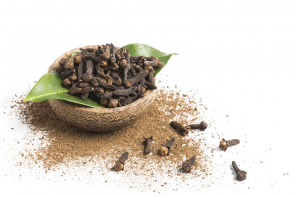
Safety Considerations and Guidelines: Using Clove Oil Responsibly
When it comes to using clove oil, it is crucial to exercise caution and follow recommended guidelines. Clove oil is highly concentrated and potent, so it is essential to dilute it properly before use. This ensures that its powerful properties are harnessed effectively without risking any adverse effects. Diluting clove oil in a suitable carrier oil, such as almond oil or coconut oil, helps to minimize potential skin irritations or sensitivities.
Potential Risks of Concentrated and Excessive Use:
While clove oil offers various benefits, it is important to be aware of the potential risks associated with concentrated and excessive use. Using undiluted or excessive amounts of clove oil may lead to skin irritations, allergic reactions, or sensitivities in some individuals. Furthermore, ingesting large quantities of clove oil can be harmful and may cause nausea, vomiting, or other digestive disturbances. It is always recommended to use clove oil in moderation and follow the recommended dosage guidelines.
Safety Tips and Precautions for Using Clove Oil:
To ensure a safe and enjoyable experience with clove oil, consider the following safety tips and precautions:
Patch Test: Before applying clove oil topically, perform a patch test on a small area of skin to check for any adverse reactions or sensitivities.
Proper Storage: Store clove oil in a cool, dry place away from direct sunlight. This helps maintain its potency and extends its shelf life.
Keep Away from Children and Pets: Clove oil should be kept out of reach of children and pets to prevent accidental ingestion or misuse.
Consult a Healthcare Professional: If you have any underlying health conditions, are pregnant or breastfeeding, or are taking medications, it is advisable to consult a healthcare professional before using clove oil to ensure it is safe for your specific circumstances.
Use in Well-Ventilated Areas: When using clove oil for cleaning or aromatherapy purposes, ensure proper ventilation in the area to prevent inhaling excessive amounts of the oil.
By following these safety tips and precautions, you can enjoy the benefits of clove oil while minimizing the risks associated with its use. As with any natural product, it is important to use it responsibly and be mindful of your own body’s reactions and limitations.
Making Informed Choices About Clove Oil Use
Throughout this exploration of the potential link between clove oil and cancer, it is important to note that there is currently no conclusive evidence to support a direct causal relationship. While some studies have examined the effects of eugenol, a compound found in clove oil, on cancer cells, the need for further research highlights the complexity of this topic. Some regulatory bodies such as the EPA have conducted testing and deemed clove oil to be FIFRA exempt, indicating a low risk to human health. These factors suggest that the concerns surrounding clove oil and cancer should be approached with caution.
Importance of Responsible Use and Professional Advice:
In light of the available information, it is crucial to emphasize the importance of using clove oil responsibly and seeking professional advice when needed. Diluting clove oil appropriately and following recommended guidelines can help minimize potential risks. It is also essential to consult healthcare professionals or aromatherapy experts, who can provide tailored recommendations based on individual health circumstances. Their expertise can ensure safe and effective usage of clove oil, particularly if you have underlying health conditions or are using other medications.
When considering the use of clove oil, it is crucial to make informed decisions based on scientific evidence and individual health circumstances. While the studies conducted thus far have not established a definitive link between clove oil and cancer, it is prudent to remain open to new research findings and ongoing developments in the field. By staying informed, seeking professional advice, and considering one’s own health and well-being, individuals can make choices that align with their values and priorities.
Ultimately, the responsible use of clove oil, like any other natural product, is key. Understanding the potential risks and benefits, adhering to recommended guidelines, and being proactive in seeking expert advice when necessary will help ensure the safe and enjoyable use of clove oil. As with any health-related decision, the focus should be on maintaining a balanced approach that promotes overall well-being and aligns with individual needs and preferences.

Purchase here…
EarthSential
All Purpose Cleaners:
Each designed to bring a touch of natural freshness and cleaning power to your home.
Available in: Clove, Lavender, Lemongrass, Mint & Orange.
All Purpose Cleaner can be used on a variety of surfaces, including kitchen and bathroom counters, floors, furniture, and even pet items.
We prioritize your well-being and the health of our planet.
That’s why our products are carefully crafted to be non-toxic, ensuring a safe and healthy cleaning experience for you and your family.
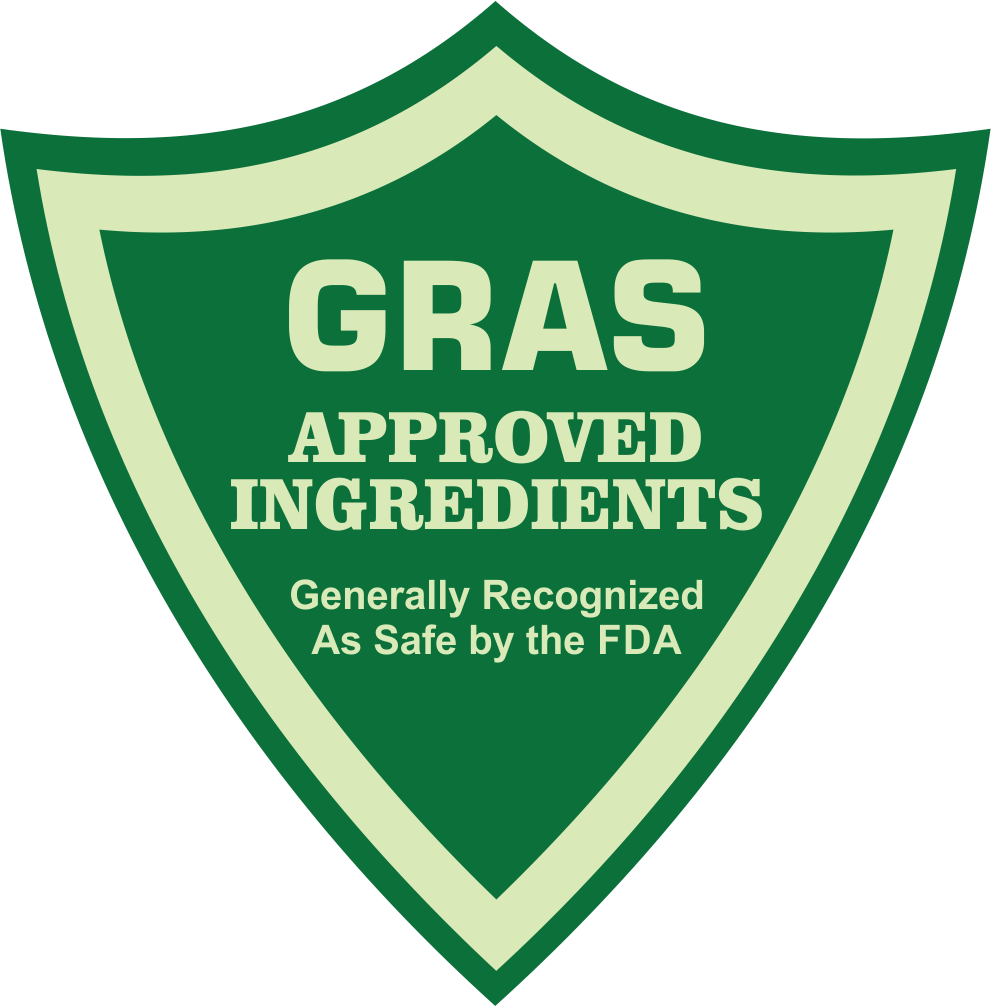
The SAFEST All Natural Ingredients
EarthSential products are made with safety as our first ingredient! Our ingredients are all natural food grade and all found of the GRAS List, approved as SAFE ingredients by the FDA. Rest assured that our products are the SAFEST in the world, we made them that way.
See what EarthSential
is all about!
Related Articles:
![]()
The Benefits:

of Using Natural Cleaning Products for Allergy Sufferers
by Bonnie Pellerin Ι June 1, 2023 Ι 4 Min Read
Cleaning with Care:

Essential Tips for Cancer Patients and Caregivers
by Bonnie Pellerin Ι June 6, 2023 Ι 3 Min Read
Related Articles:
![]()
The Power of Nature
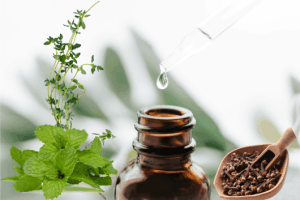
How Peppermint, Clove and Thyme Work Together to Repel Rodents
by Minus Bite Ι May 3, 2023
Get the EarthSential Newsletter
Good deals, great advice & essentially necessary.
MORE ARTICLES:
cleansing the meditation center preparing the mind
Cleansing the Meditation Center preparing the mind Have you ever wondered how they go about cleansing the meditation center and preparing the mind for meditation? In the sacred realm where tranquility meets spirituality, the art of cleansing becomes a profound...
why dentist offices should use natural cleaners
This silent invasion of toxins raises a pressing question: why dentist offices should use natural cleaners? In the quiet hours of the night, after the last patient has left and the dental office falls into a hush, a transformation occurs. It’s not the dentist or the...
the path to a pristine bookstore with natural cleaners
In the heart of every bookstore, where the scent of ink and paper mingles with the rustle of turning pages, lies a hidden truth: the importance of cleanliness. Yet, the path to a pristine bookstore often takes a detour through the realm of harsh chemical cleaners,...
five cleaning tips for your art gallery
Just what you were looking for, five cleaning tips for your art gallery. As artists, you understand the meticulous effort poured into every brushstroke, every sculpture, and every creation. Now, imagine your masterpiece showcased in a gallery space that exudes not...
healthier coffee shops without chemicals
Experience the essence of vibrant cafes where the air is as invigorating as the coffee, all achieved through the commitment to crafting healthier spaces in coffee shops without chemicals. Coffee shops are not just places to grab a quick cup of joe; they are...
the crucial shift in yoga studios
It only makes sense, the crucial shift in yoga studios toward all-natural cleaners. The whole idea behind yoga is to improve your body's health and wellness. The Hidden Dangers of Conventional Cleaners and the crucial shift in yoga studios Yoga studios, often...
why salons need natural cleaners
In the world of beauty and wellness, the essence of a salon lies not just in its artistry but also in its commitment to the well-being of its patrons. That's why salons need natural cleaners - a transformative shift towards a cleaner, healthier environment. Clients...
why spas must embrace natural cleaning
Why Spas Must Embrace Natural Cleaning? Because a spa is more than just a space; it's a haven where people seek solace, healing, and renewal. In the pursuit of tranquility, the last thing anyone wants to encounter is toxins. Whether guests are there for a massage,...
urgent call daycares to adopt natural cleaners
In the heart of our communities, where the laughter of children echoes and the future takes its first steps, a silent crisis looms. Daycares, the nurturing grounds of our youngest citizens, unknowingly harbor unseen threats within their walls. The traditional cleaning...
transforming schools with green cleaners
For years, the practice of using a bleach and water mixture to clean school desks has been a standard procedure, seemingly harmless in its intention to keep classrooms free of germs. However, beneath this seemingly innocuous solution lies a hidden danger, especially...
